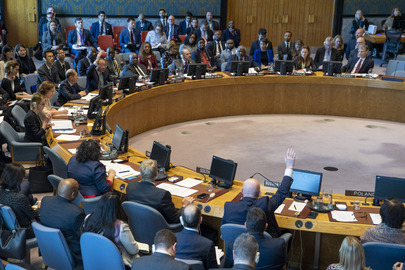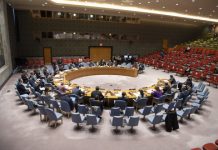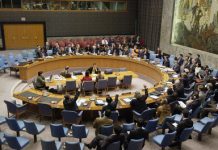Launched on Thursday, the Spotlight Initiative Impact Report details how legal reform, social mobilisation and investment in survivor services have driven transformative change across more than 25 countries.
“Every major crisis that we face today – from climate change to conflict to poverty – intersects with one issue: violence against women and girls,” said UN Deputy Secretary-General Amina J. Mohammed.
“That is why the Spotlight Initiative is so essential.”
The report was launched on the margins of the Second World Summit for Social Development in Doha, where leaders on Tuesday adopted a landmark political declaration reaffirming global commitments to accelerate progress on poverty reduction, social protection and gender equality.
Progress must be sustained
According to the report, over 540 laws and policies were adopted or strengthened to protect women and girls; nearly 8 million young people took part in programmes promoting equality; and conviction rates for gender-based violence doubled in 13 countries.
Campaigns challenging discrimination reached 385 million people, and almost 3 million women and girls accessed gender-based violence services, including long-term recovery and justice support.
The Initiative’s prevention-centred model also prevented an estimated 21 million women and girls from experiencing violence by the end of 2024.
“This report shows what is possible when we work together across sectors and institutions,” she said, adding that progress remains fragile and must be sustained.
From commitments to results
A UN special programme to end violence against women and girls, the Spotlight Initiative supports governments in developing gender-responsive laws, strengthening data systems, improving services for survivors, and empowering civil-society and women’s movements.
Its first phase (2017-2023) operated across five regions, while new national and regional programmes now run in Ecuador, Liberia, Sierra Leone, Uganda and Zambia, with plans to reach 60 countries in the coming years.
“The question is not whether we can afford to end violence against women and girls,” Ms. Mohammed concluded. “It’s whether we can afford not to.”
UN News on the ground
UN News is on the ground in Doha, providing continuing coverage throughout the week, including live updates, interviews and analysis from the Summit. Follow our coverage here.
Source of original article: United Nations (news.un.org). Photo credit: UN. The content of this article does not necessarily reflect the views or opinion of Global Diaspora News (www.globaldiasporanews.net).
To submit your press release: (https://www.globaldiasporanews.com/pr).
To advertise on Global Diaspora News: (www.globaldiasporanews.com/ads).
Sign up to Global Diaspora News newsletter (https://www.globaldiasporanews.com/newsletter/) to start receiving updates and opportunities directly in your email inbox for free.



























